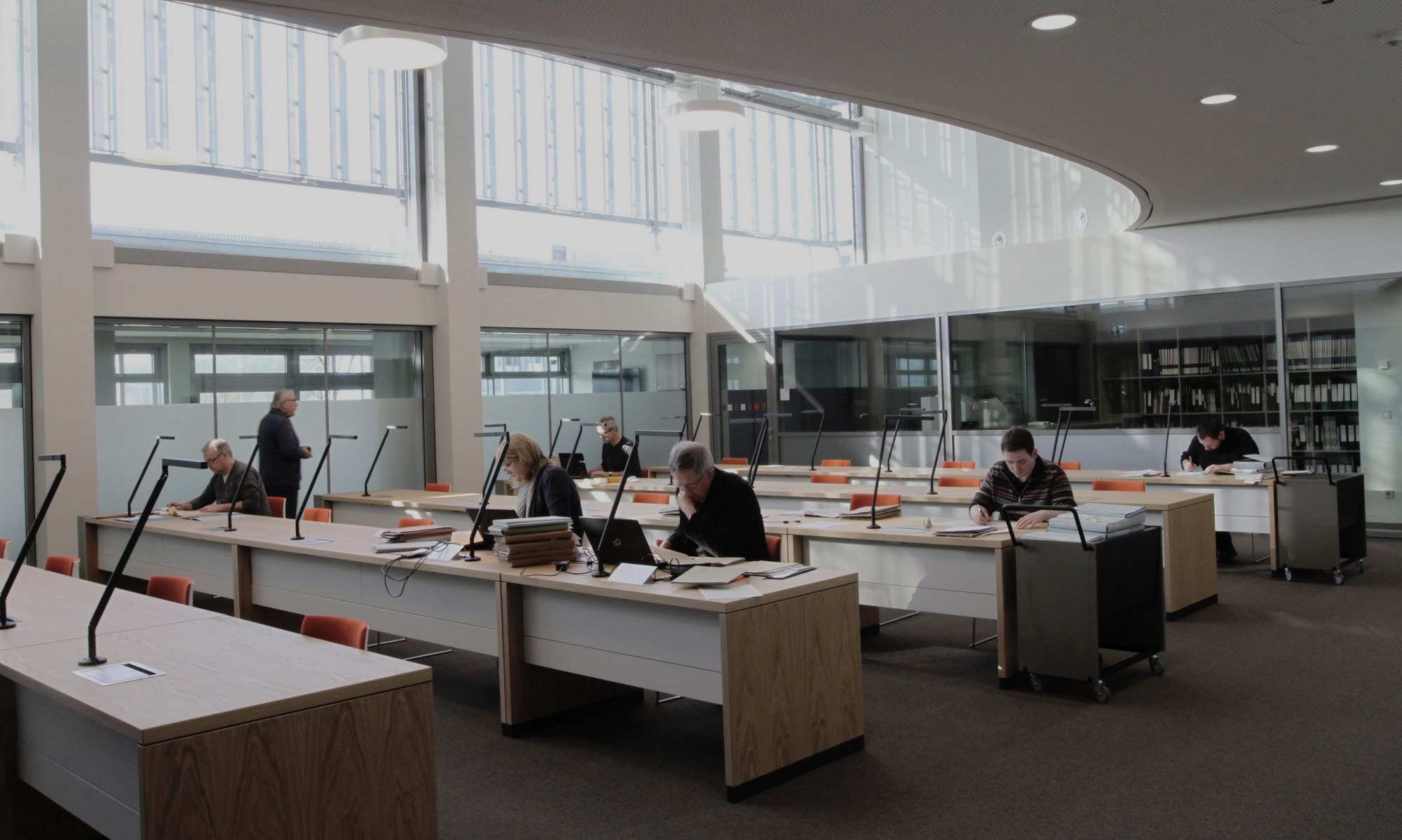We archivists guard archival treasures – with sleeve protectors and horn-rimmed glasses we dig our way through enormous stacks of paper in dusty cellars. So much for the cliché that still persists as the image of the way we work. The fact that we mainly sit in front of computers processing records in specialised databases is probably not (yet) part of the widespread image of archival work. However, this is exactly what the main task of the archivist working on the OFP project involves.
In this project, the archivist’s primary goal is to review, revise and standardise data sets on the approximately 42,000 files. This is necessary for several reasons:
The files of the “Vermögensverwertungsstelle“ were kept in the Landesarchiv Berlin until 2001 when they were transferred to the Landeshauptarchiv in the course of negotiations on the exchange of records. Initial indexing of the files was begun in the Landesarchiv Berlin and then continued in the Landeshauptarchiv. This resulted in different indexing standards within a database which is no longer in use today, and though needed to be automatically transferred to the archives current database. Formal errors that occurred during the process of migrating the data are now being corrected and the indexing information is standardised and verified. Consistent indexing of all files provides the basis for the implementation of restoration measures, digitisation and evaluation in the project.
Strasburg or Straßburg?
Plausibility of the indexing data is checked during record standardisation. With over 40,000 individual case files, inevitably errors will have occurred. Has the file’s creation date been entered? Have the place of birth, name, family members and last place of residence been correctly registered? This is essential in order to make the data fully available to all potential users. In future, searches in the database will provide victims relatives and researchers with precise results and enable facetted search requests – for example, the search for persons with the same place of residence and place of birth.
In some cases, correct spelling of the place of birth determines whether a person or group of persons can be retrieved. Whether someone was born in Strasburg/West Prussia or in Straßburg/Alsace can make a considerable difference within the search query. The archivist verifies inconsistent information on the paper files themselves or matches them with the database of LIDOS-Gedenkbuchdatenbank for Berlin.
At the End of the Project
At the end of the archival work within the project, a well-structured data pool will be available online in accordance with the legal requirements for archives. The aim is to facilitate searching for and use of the files, digitised material and indexing data. In addition, the standardised structuring of the data will enable exporting and providing it to research platforms.





